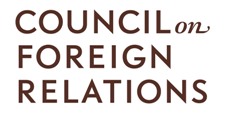Nigeria Turns to Russia, Czech Republic, and Belarus for Military Training and Materiel
Wednesday, October 29, 2014 A member of the military special forces sits on an armoured vehicle near Kramatorsk, September 4, 2014. (Gleb Garanich/Courtesy Reuters)
A member of the military special forces sits on an armoured vehicle near Kramatorsk, September 4, 2014. (Gleb Garanich/Courtesy Reuters)
The Vanguard, a Nigerian daily, carried a report on September 28, confirmed by the Ministry of Defense, that 1,200 Nigerian soldiers, police, and Department of State Services (DSS) are being trained by Russian special forces. The Vanguard says that Abuja has turned to Moscow following an “alleged snub or nonchalant attitude of the United States and the United Kingdom toward Nigeria in her fight against Boko Haram terrorists.” Read more »












